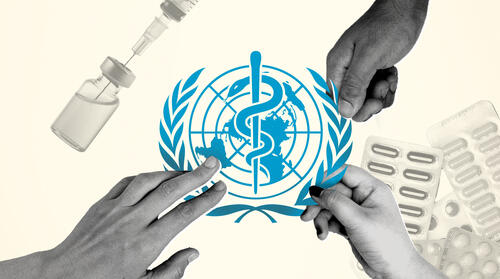
Breaking News
 BREAKING: Assault Weapons Ban Just Passed For 2026 : 10 Years Prison Who Own This!
BREAKING: Assault Weapons Ban Just Passed For 2026 : 10 Years Prison Who Own This!
 Zelensky To Trump: 'Give Me 50 Year Security Guarantee...And More Money!'
Zelensky To Trump: 'Give Me 50 Year Security Guarantee...And More Money!'
 I've Never Seen A USB-C Charger This Good!
I've Never Seen A USB-C Charger This Good!
 China Just Broke The Silver Market
China Just Broke The Silver Market
Top Tech News
 EngineAI T800: Born to Disrupt! #EngineAI #robotics #newtechnology #newproduct
EngineAI T800: Born to Disrupt! #EngineAI #robotics #newtechnology #newproduct
 This Silicon Anode Breakthrough Could Mark A Turning Point For EV Batteries [Update]
This Silicon Anode Breakthrough Could Mark A Turning Point For EV Batteries [Update]
 Travel gadget promises to dry and iron your clothes – totally hands-free
Travel gadget promises to dry and iron your clothes – totally hands-free
 Perfect Aircrete, Kitchen Ingredients.
Perfect Aircrete, Kitchen Ingredients.
 Futuristic pixel-raising display lets you feel what's onscreen
Futuristic pixel-raising display lets you feel what's onscreen
 Cutting-Edge Facility Generates Pure Water and Hydrogen Fuel from Seawater for Mere Pennies
Cutting-Edge Facility Generates Pure Water and Hydrogen Fuel from Seawater for Mere Pennies
 This tiny dev board is packed with features for ambitious makers
This tiny dev board is packed with features for ambitious makers
 Scientists Discover Gel to Regrow Tooth Enamel
Scientists Discover Gel to Regrow Tooth Enamel
 Vitamin C and Dandelion Root Killing Cancer Cells -- as Former CDC Director Calls for COVID-19...
Vitamin C and Dandelion Root Killing Cancer Cells -- as Former CDC Director Calls for COVID-19...
 Galactic Brain: US firm plans space-based data centers, power grid to challenge China
Galactic Brain: US firm plans space-based data centers, power grid to challenge China
Governments Must Reject New Amendments to International Health Regulations

Remember when we were subjected to a surreal barrage of orders from our governments to stay home, not entertain more than X guests for dinner, not open bars and restaurants to unvaccinated customers, stay away from places of worship, wear pieces of cloth on our faces while walking to our seats in bars, etc etc., purportedly with a view to crushing a respiratory virus that made a relatively marginal impact on average life expectancy?
And then we all took a big sigh of relief when governments finally lifted the restrictions? Well, don't get too comfortable, because the WHO, most likely with the complicity of your government, is pushing through a set of amendments to international pandemic laws that will put your livelihood and liberties at the mercy of a WHO-appointed "expert committee" whose advice during a pandemic or other "public health emergency" will supersede that of your own government.
The proposed amendments to International Health Regulations do not require any new treaty, even though the WHO is attempting to get a separate pandemic accord ratified in addition to the IHR amendments. These amendments alone will revolutionise the international legal framework that governs responses to public health emergencies. The amendments are still being negotiated and the WHO aims to see them finalised in May 2024. They will be considered fully ratified ten months later unless heads of State explicitly reject them in the meantime.
It is critical that heads of State explicitly reject these amendments before they come into effect, because they cede a dangerous amount of power to the WHO during international public health emergencies, and the WHO can activate this emergency power by unilaterally declaring a public health emergency "of international concern."



